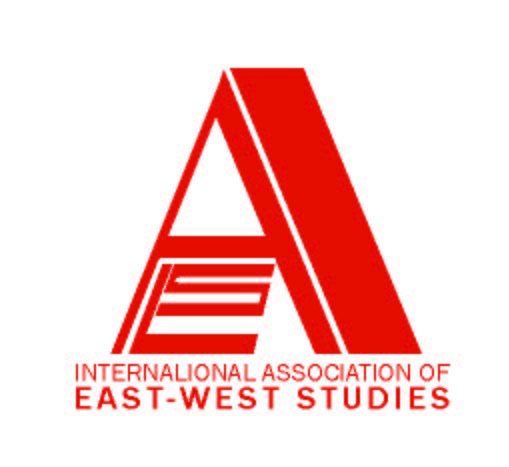International Association for East-West Studies (IAES)
 IAES is a non-profit organization and is established for the purpose of:
IAES is a non-profit organization and is established for the purpose of:
- Promoting intellectual exchange, cooperation and amity among East-West scholars in North America and world;
- Contributing to the development of higher education in East-West Countries;
- Enhancing East-West friendship and mutual understanding;
- Committing to academic freedom, due process and collegiality.
The following are eligible for membership:
- any individual of East-West scholars who has a doctoral degree in East-West studies, or equivalent, or is a faculty member or researcher in East-West studies or related fields at the rank of instructor or equivalent or higher in an institution of higher learning (including universities, colleges and other institutions) ;
- any individual who is interested in East-West studies or other related academic subjects;
- Each member is obligated to pay annual membership fees to the organization as set by the Board of Directors and approved by the majority of members.
The Board shall hold an annual general assembly of the organization. The activities which the Board can organize or for which committees can be appointed may include, but are not limited to, the following:
- scholarly panels at academic conferences or forum discussions among members;
- social gathering of members;
- special seminars;
- workshops;
- scholarly visits;
- fund raising.
- academic publication
- Journal of East-West Thought
https://www.cpp.edu/jet/iaes
http://www.cpp.edu/jet
Journal of East-West Thought - Bronco Scholar
https://journals.calstate.edu/index.php/jet
BYLAWS OF INTERNATIONAL ASSOCIATION FOR EAST-WEST STUDIES
(February 1, 2011)
Article I. Name
This organization shall be known as International Association for East-West Studies (IAES).
Article II. Purpose
As a non-profit organization, AEWS, is established for the purpose of:
- Promoting intellectual exchange, cooperation and amity among East-West scholars in North America and world;
- Contributing to the development of higher education in East-West Countries;
- Enhancing East-West friendship and mutual understanding;
- Committing to academic freedom, due process and collegiality.
Article III. Membership
- The following are eligible for membership:
- Any individual of East-West scholars who has a doctoral degree in East-West studies, or equivalent, or is a faculty member or researcher in East-West studies or related fields at the rank of instructor or equivalent or higher in an institution of higher learning (including universities, colleges and other institutions) ;
- Any individual who is interested in East-West studies or other related academic subjects.
- Any individual who meets the above eligibility requirement, but works outside North America may be nominated for a guest membership upon approval of the Board.
- Each member is obligated to pay annual membership fees to the organization as set by the Board of Directors and approved by the majority of members.
Article IV. Board of Directors
- The executive powers of the organization are vested in the Board of Directors.
- The Board is composed of the following nine (or eleven)members:
- President
- Vice-standing President
- Vice President
- Secretary General
- Executive Deputy Secretary-General
- Deputy Secretary-General
- Treasurer & concurrently Standing Board Member
- Other Two (or four) Board Members
- President and all other Board members shall be elected for a term of three years. The president is the chief executive officer of the organization and may serve for two terms. The Board members can be reelected.
- If any Board member resigns or is unable to serve, the vacant seat shall be filled by another member elected to the Board for the remainder of the term.
Article V. Activities
- The Board shall hold an annual general assembly of the organization.
- The activities which the Board can organize or for which committees can be appointed may include, but are not limited to, the following:
- Scholarly panels at academic conferences or forum discussions among members;
- Social gathering of members;
- Special seminars;
- Workshops;
- Scholarly visits;
- Fund raising.
- Academic publication
- Journal of East-West Thought
- If any member plans other activities in the name of the center, the prior approval of the Board is required.
Article VI. Amendments
These By Laws may be amended with the approval of a majority of the Board and ratification by two-third of the membership.
Article VII. Dissolution
In the event of the dissolution of the organization, all of its assets or properties shall, subject to the discharge of valid obligations of the organization, be distributed to charitable organizations as the Board or the membership may decide.
Article VIII. Voting and Election
- All elections under Article III and decisions under Article III, IV and VII shall be conducted by electronic mail. The decision shall be on the majority of votes with a time limit.
- In all other matters decisions shall be made by a majority of members present and voting.
- The election of the Board must be on “due process”:
- The Board organizes an election committee (3-5members who are not running for the Board);
- Any joined 3 members can nominate a candidate;
- The Election Committee holds the primary election to find 11 candidates by all members’ voting;
- The Election Committee holds the final election to determine 9 final winners by all members’ voting;
- The old Board members cannot be involved in any work of the Election Committee;
- The Election Committee must keep the confidentiality of every voter, and also make the whole process “transparently”.
- The Election Committee must preserve the whole election files for three years (in case for members’ questioning).
- The president will be the elected Board member who won the most votes , the associate director will be the second most votes winner, the Treasure and Secretary will be the third winner.
Article IX. Ratification
These Bylaws are effective upon ratification by two-third of the membership.